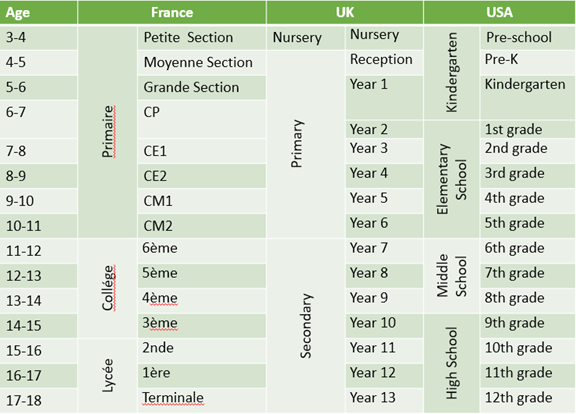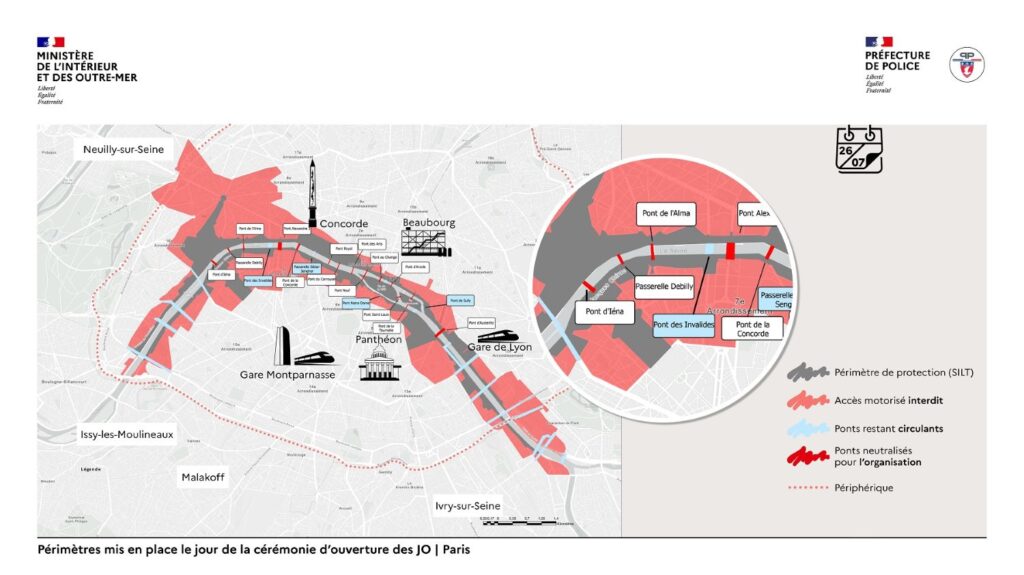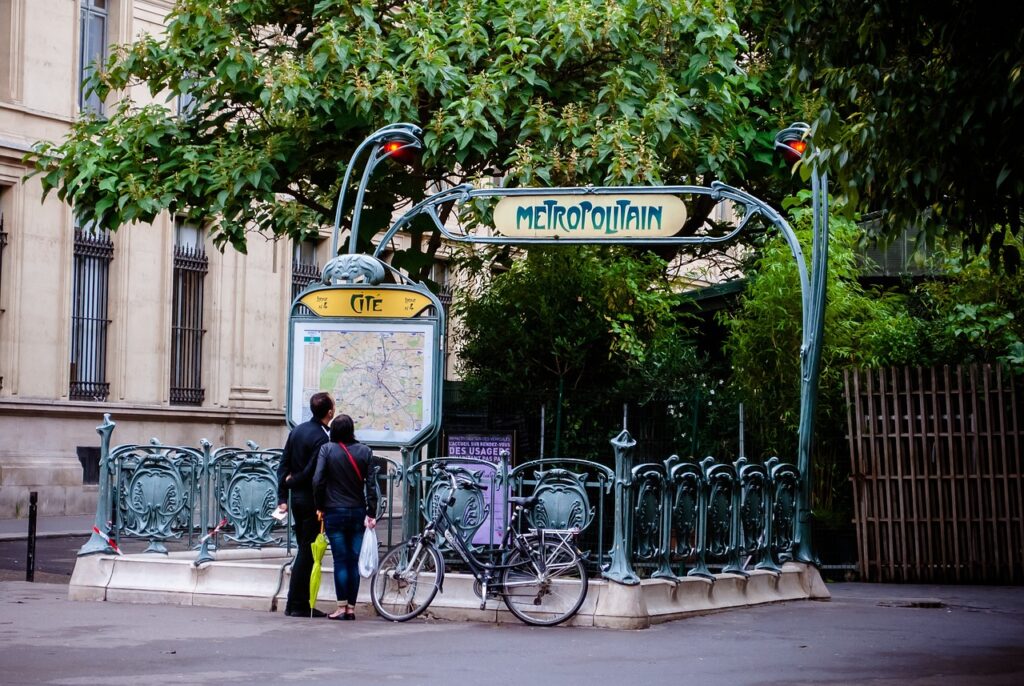If you are considering sending your children to a school in France, knowing what you’re getting into is crucial. I’ve gathered all the essential information you need to navigate the French school system like a pro.
Education in France
In France, education is COMPULSORY and FREE from the age of 3 until the age of 16. Compulsory education includes three years of pre-primary education (in École Maternelle), five years of primary education (in École Élémentaire) and then five years of secondary education (four years in Collège and the first year in Lycée). Afterwards, students can continue their studies until the last year of Lycée and access higher education.
Primary education
Primary education is made up of the following stages:
- École Maternelle: These are the first three years of pre-primary school (for ages 3 to 6), and the three grades are called Petite Section, Moyenne Section, and Grand Section.
- École Élémentaire: These are the next five years of primary school (for ages 7 to 11), with the grades having a very intuitive numbering system of CP, CE1, CE2, CM1 and CM2.
Secondary education
After finishing primary school, children move to secondary education:
- Collège: at the age of 11 children move to Collège where they spend four years. Here, the numbering system of the grades is only slightly more intuitive and, from youngest to oldest, goes as la sixième (the 6th), la cinquième (the 5th), la quatrième (the 4th), and la troisième (the 3rd). At the end of Collège, students must sit for their first national exam for Diplôme national du Brevet . It’s a general certificate of education which is compared to GCSEs in the UK.
- Lycée: after finishing Collège, students transfer to Lycée for the final three years of school from the ages of 15 to 18. From youngest to oldest, the grades are known as seconde (2nd), première (1st) and terminale (final). Only the first year of Lycée (age 16) is part of compulsory education in France. After this, students can choose to continue studies until the last year of Lycée and access higher education. Lycée prepares students to sit the national le Baccalauréat exam, which is compared to A Levels in the UK. This is a critical exam to be passed in order to continue to higher education.
French school grade equivalents in the UK and the USA
Here is a handy conversion chart that has helped keep me sane.

High school (Lycée) in France
As mentioned above, only the first year of Lycée (age 16) is part of compulsory education in France. Most students continue their studies and spend the full three years at Lycée, preparing them for the baccalaureate examination. At the end of Collège, students must decide which type of Lycée to attend (general, technical or professional) or explore other options.
There are three types of Lycée in France:
1. General (lycée générale)
This is the traditional route for preparing students in two years for the Baccalauréat Général diploma and for further higher education, mostly in universities, preparatory classes for the Grandes Écoles or in specialised schools.
2. Technical (lycée technologique)
The route prepares students for the Baccalauréat Technoloqique diploma, and students can choose between 8 different streams:
- Science and technology of industry and sustainable development (STI2D)
- Management Sciences and Technologies (STMG)
- Science and Technology of Design and Applied Arts(STD2A)
- Science and Technology Laboratory (STL)
- Health and social sciences and technologies (ST2S)
- Sciences and technologies of the hotel and catering industry (STHR)
- Sciences and technologies of agronomy and life (STAV)
- Theatre, Music and Dance Techniques (ST2TMD)
3. Professional (lycée professionnel)
This route offers vocational training and teaching in relation to a specific profession. Students prepare for a Baccalauréat professional diploma in 3 years or a CAP diploma in 2 years, after which they can enter the workforce or continue to higher education studies within their training field. There are over 100 professional baccalaureate specialties including cybersecurity, IT, logistics, photography and others.
Higher education in France
Three main types of institution provide higher education:
1. Universities
All state universities in France are generally free, and most have no entrance exams requiring students to pass only baccalauréat after finishing Lycée. However, some universities have a high demand for courses, which makes the selection process more competitive. Even for these selective universities, tuition remains generally free.
2. Elite post graduate schools (Grandes Écoles)
Grandes Écoles are France’s most prestigious higher education schools and are known for their rigorous selection process. The track to enter a Grande École differs from the track to enter a university.
To enter one of these five-year courses, students typically undergo two years of preparatory classes (Classes Préparatoires aux Grandes Écoles or “prépas“), followed by a national competitive entrance exam called the Concours.
3. Specialised higher education schools
These Écoles Spécialisées provide students with a focused education in areas such as architecture, journalism, design, tourism and more.
Types of schools in France
Most children (c.80%) in France attend state (public) primary schools. They are free and co-ed. Parents typically pay only for lunches and after-school activities. Children are allocated places according to where they live.
About 20% of children in France attend private primary schools. France has two types of private schools: contracted (sous contrat) and non-contracted (hors contrat) to the French government. Private schools are not linked to your postcode, and students can apply to any private school regardless of the location.
There are important differences to understand between the two types of private schools.
Sous contrat (contracted) private schools:
- These are state-contracted private schools which have signed an agreement with the French state allowing the school to benefit from financial aid for operating costs and teachers’ salaries
- They must follow the same French curriculum as the state schools if they wish to remain under contract to the state education system and receive funding from the government
- Tuition fees are typically much lower than the hors contrat schools
- Teachers are required to hold a national French teaching certificate, allowing them to work in public establishments
Hors contrat (non-contracted) private schools
- These are independent schools that are not under state control and do not receive any subsidies from the state
- They are NOT obliged to follow the French state curriculum and are free to set own curriculum as well as the language or languages in which the subjects are taught
- They are not obliged to offer the same number of school hours as the public school, or schools under sous contrat
- As the French state does not contribute to operating costs or teacher salaries, tuition fees are typically very high (for France) and on par with the cost of private schools in the US, Canada, and the UK
School hours
The school hours are generally from 8:30 until 16:30, but it varies depending on the school. There are 24 hours of lessons a week.
Wednesdays in France are treated differently from the rest of the school week. Some schools don’t have any classes on Wednesdays, while others only have classes on Wednesday mornings until about midday, and it again depends on the specific school and the area where you live.
All state schools offer after-school care every day of the week for a relatively small fee paid online through the educational portal of your local Mairie (City Hall). Prior registration is a must.
School curriculum
The French Ministry of Education is responsible for education in France and defines the national school curriculum. It sets out what children are expected to achieve or know by the end of each educational stage. There is more information about the French preschool curriculum here and the curriculum for the remaining stages is available on the website of the Ministry of Education.
Read How do I sign up my child for a French school? and Should I choose a public or private school for my child in France?




Great article! It’s sometimes difficult to understand the French system and how it compares to the UK system. This makes it really clear!
Happy to hear you found it useful.